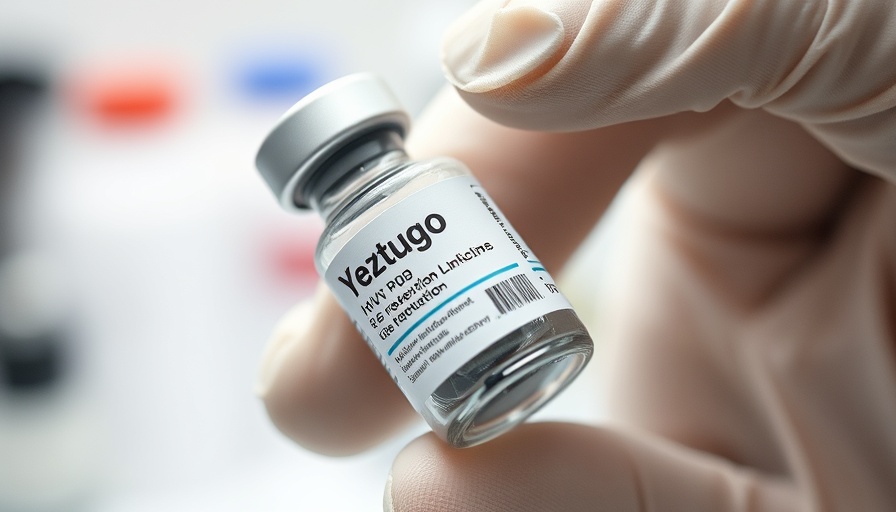
The New Era in HIV Prevention: A Game-Changer for Many
The U.S. approval of Yeztugo, the only twice-a-year shot designed to prevent HIV, marks a significant step forward in global health care. While a vaccine remains the ideal preventive solution, the development of lenacapavir, produced by Gilead Sciences, offers a powerful alternative for those at high risk. In clinical trials, this injection has remarkably reduced new infections, demonstrating superior performance compared to daily preventive pills.
Understanding the Accessibility of Yeztugo
While medical innovation gives hope, the challenge of equitable access looms large. The effectiveness of Yeztugo depends not just on its availability but also on systemic factors affecting healthcare in the U.S. and around the world. Greg Millett from amfAR, The Foundation for AIDS Research, emphasizes that cuts to public health agencies and Medicaid, alongside reduced foreign aid for HIV initiatives, represent serious obstacles to widespread adoption. Without robust public health systems and continuous community support, ensuring that individuals return for their twice-yearly injections may present difficulties.
Why Yeztugo is a Revolutionary Option for Many
The six-month protection offered by Yeztugo presents a substantial advantage for those hesitant to engage in daily medication regimens. Many people living with anxiety around taking daily pills due to stigma or forgetfulness are likely to find this biannual intervention much more tenable. Additionally, this long-acting prevention method encourages regular healthcare engagement, leading to important health check-ups and preventive screenings that many might otherwise neglect.
Addressing Misconceptions Surrounding HIV Prevention
Despite the promise of Yeztugo, misconceptions about HIV transmission persist, overshadowing the conversation about effective prevention. While effective, it's crucial to understand that Yeztugo does not prevent other sexually transmitted infections (STIs), which highlights the importance of comprehensive sexual education and health awareness. Public health campaigns should strive to clarify that the introduction of long-acting prevention methods does not replace the need for safe practices like condom use.
Emotional and Human Interest Perspectives
For many individuals living with a high risk of HIV, the approval of Yeztugo can feel like a lifeline. Stories of individuals who have navigated the complexities of HIV prevention highlight the urgent need for accessible treatment options. This shot could revolutionize lives, helping people feel a greater sense of safety and control over their health. Furthermore, it can play a critical role in the broader fight against stigmatization, encouraging open conversations and support in communities.
Future Prospects: What Lies Ahead?
As the healthcare landscape continues to evolve with promising treatments like Yeztugo, it's critical to maintain momentum in the fight against HIV. Global commitment to ending the HIV pandemic by 2030 is facing significant setbacks, with over 30,000 new infections reported annually in the U.S. alone. The next steps will determine whether innovative treatments can be translated into real-world benefits for communities affected by HIV.
As Charlotte residents and health advocates, it's essential to stay informed about the implications of these developments. Engage with local healthcare providers on access to these medications, and consider participating in community outreach programs aimed at increasing awareness around HIV prevention. There is much at stake, and with unified action, we can tackle both the virus and the stigma surrounding it.
 Add Row
Add Row  Add
Add 


 Add Row
Add Row  Add
Add 

Write A Comment